Vice President Biden offered his take on President Obama’s nuclear legacy and gave the incoming administration some subtle recommendations in an address at the Carnegie Endowment for International Peace on January 11. In his speech, Biden reflected on the Obama administration’s progress on the nuclear policy goals the president described in a 2009 speech in Prague.
Obama’s speech outlined four key nuclear policy objectives, which have since been referred to as “the Prague Agenda”: reduce the role of nuclear weapons, strengthen the nonproliferation regime, support peaceful nuclear energy, and promote nuclear security.
The vice president’s speech coincided with the release of a White House factsheet on “The Prague Nuclear Agenda”.
In his remarks, Biden pointed to several successes from the agenda, especially in strengthening the nonproliferation regime, supporting nuclear energy, and promoting nuclear security.
Biden lauded the Joint Comprehensive Plan of Action, which he described as a remarkable achievement that prevented Iran from obtaining a nuclear weapon without resorting to use of force. Biden referenced several new peaceful nuclear cooperation agreements, including with Russia, China, and Vietnam. He mentioned the administration’s efforts to secure nuclear material—especially to keep them out of the hands of terrorists—such as Obama’s four nuclear security summits.
Biden credited Obama’s nuclear modernization program with setting in motion steps to preserve a safe, secure, and effective nuclear deterrent, even with fewer nuclear weapons. It was the modernization effort, Biden claimed, which allowed the president to pursue several nuclear policy reforms without weakening national security.
Biden also cited success in reducing the role of nuclear weapons, although some disagree.
The vice president announced that Obama had cut over 500 weapons from the U.S. nuclear arsenal, bringing the total U.S. stockpile to 4,018 nuclear weapons as of September 2016. The Obama administration reduced the stockpile by 1,255 weapons during its two terms. That is a significant number, but as Hans Kristensen pointed out in response to Biden’s remarks, Obama has removed fewer weapons from the stockpile than any post-Cold War president.
In its 2010 Nuclear Posture Review, the Obama administration committed to create the conditions for a “sole purpose” nuclear doctrine, in which nuclear weapons would serve only to deter a nuclear attack on the United States or its allies. At Carnegie, Biden stated his belief that the United States could now adopt such a policy. “Given our non-nuclear capacities and the nature of today’s threats, it’s hard to envision a plausible scenario in which the first use of nuclear weapons by the United States would be necessary or would make sense.” However, the administration has notably not adopted such a policy, and it is unclear whether the Trump administration will pursue it.
In other areas of the Prague Agenda, Biden conceded defeat. He noted that North Korea’s nuclear program continued to grow under the Obama administration and that the administration had failed to gain Senate ratification of the Comprehensive Test Ban Treaty.
The administration faced strong opposition to some Prague Agenda goals. Increasingly bitter relations with Russia dashed hopes of further nuclear reductions, despite the administration’s offer to negotiate a reduction up to one third below the levels of deployed strategic weapons required by the New START Treaty. A fiercely partisan Senate showed no interest in Comprehensive Test Ban Treaty ratification.
Biden also made subtle recommendations for the next administration. He stressed the importance of negotiating arms control treaties even in the face of deep mistrust among countries and cautioned against fatalist arguments proclaiming the inevitability of nuclear weapons. He warned against high spending on nuclear weapons, arguing that it could detract from U.S. moral leadership as well as take away funds from conventional weapons.
Most explicitly, the vice president recommended that the next administration conduct a nuclear posture review. This recommendation in particular is important for the president-elect. President-elect Trump will face many nuclear challenges when he enters office. Biden mentioned several in his remarks, including the growth and diversification of other countries’ arsenals, as well as destabilizing actions by North Korea, Pakistan, and Russia. It is unclear how Trump will approach these challenges. He has yet to outline his own set of nuclear policies. On the contrary, he has sent mixed and sometimes alarming signals, including condoning Japan and South Korea’s acquisition of nuclear weapons and a new arms race while also expressing interest in further nuclear arms reductions. In order to address current and future nuclear threats, Trump should take a cue from Obama and identify his own “(fill in the city) Agenda” early in his term.
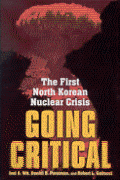
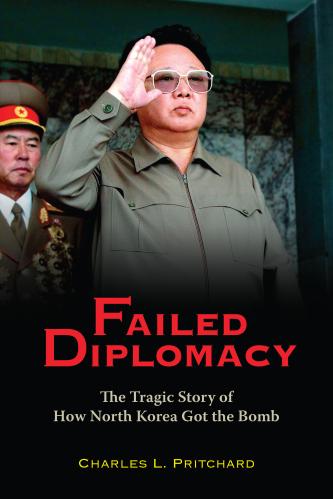
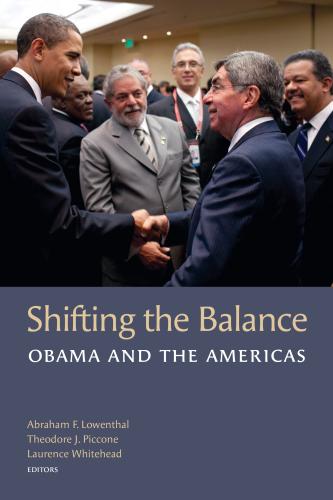
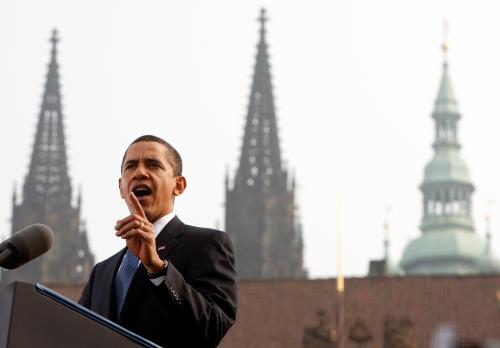
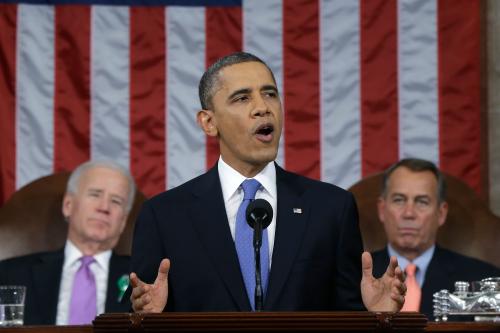
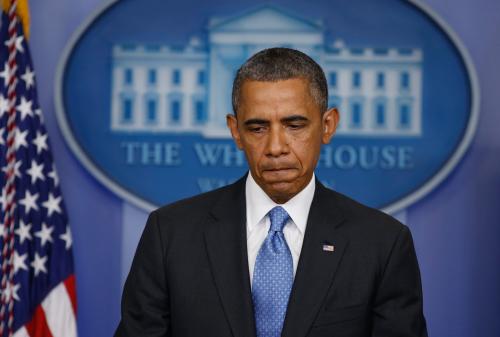



Commentary
The vice president’s farewell on nuclear security
January 17, 2017